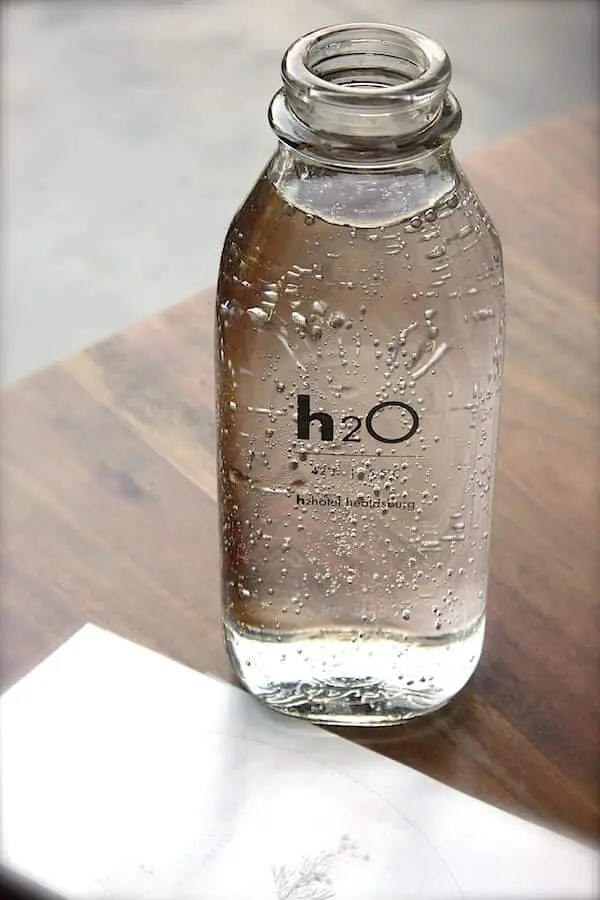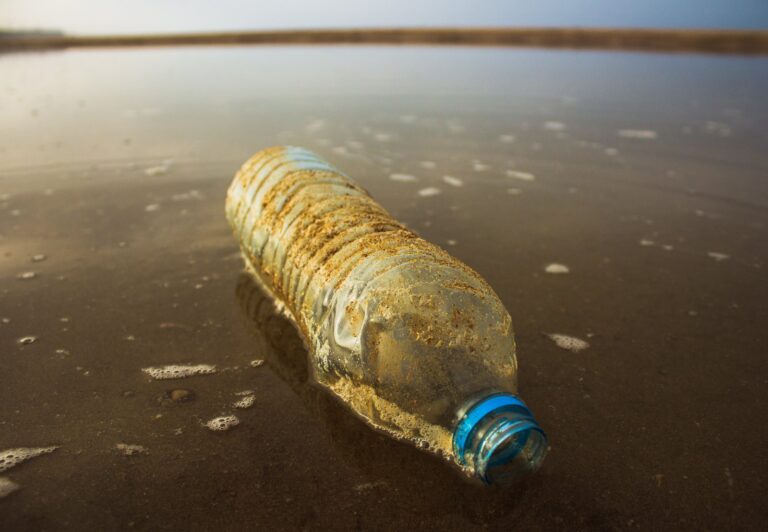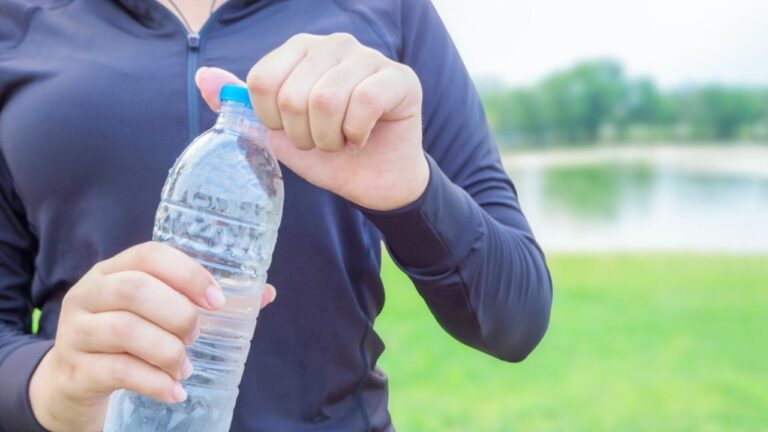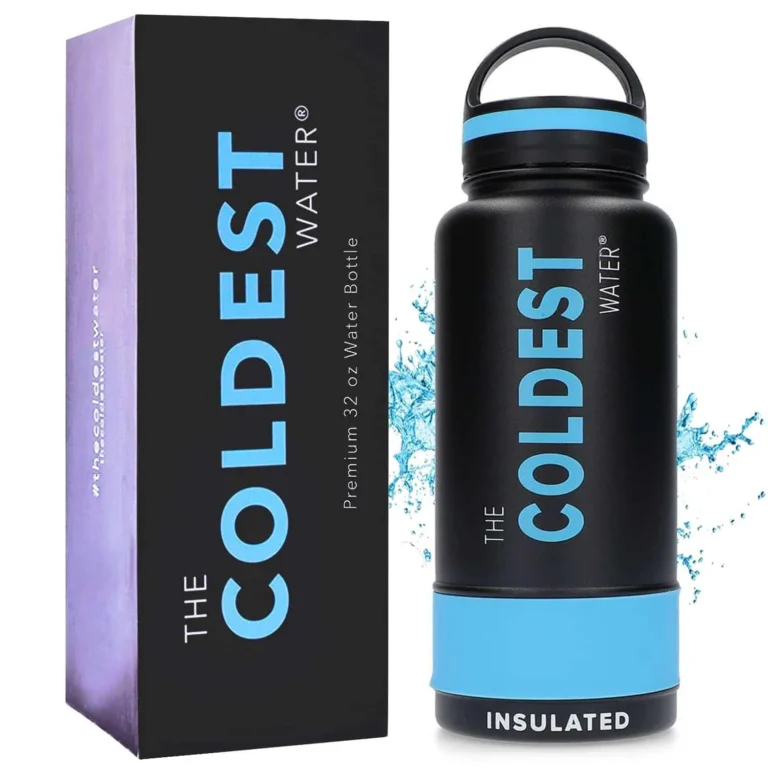As more people become conscious about the environment, the idea of switching from plastic water bottles to glass water bottles has gained popularity. Glass water bottles are not only attractive but also eco-friendly and healthier. But switching to glass water bottles might not be all that perfect. Like any other option, it has its pros and cons. In this post, we will explore the pros and cons of using glass water bottles to help you decide if it’s the right choice for you. So, let’s dive in!
I.Importance of using eco-friendly water bottles
Using eco-friendly water bottles is becoming increasingly important in today’s world. Not only do they help to reduce our carbon footprint, but they also have a number of benefits for the user. One of the main advantages is the purity of taste that glass water bottles offer. Unlike plastic bottles, glass does not leave any unpleasant taste behind, ensuring that your water always tastes clean and refreshing. Additionally, glass water bottles are chemical-free, providing a safer and healthier option for drinking water. By choosing an eco-friendly option like glass, you can enjoy the benefits of a pure and clean taste, while also doing your part to protect the environment.
II. Pros [ Advantages ] of Glass Water Bottles
A. Purity of taste
When it comes to water bottles, one of the main advantages of glass bottles is the purity of taste they offer. Unlike plastic bottles, glass does not leach chemicals into the water, ensuring a clear flavor advantage. Glass water bottles are made from a chemical-free composition, which means that your water remains untainted by any harmful substances. This makes it the perfect choice for those who prioritize a clean and natural taste in their beverages. Whether it’s a refreshing sip of water or a hydrating gulp of your favorite drink, glass water bottles provide a pure and unadulterated experience for your taste buds to savor.
B. Clear flavor advantage
Glass water bottles offer a clear flavor advantage over other types of containers. Unlike plastic or metal, glass doesn’t retain any residual flavors or odors, ensuring a pure and refreshing taste every time. This is especially important for those who are sensitive to taste or enjoy the natural flavor of their water. With glass, you can trust that your water will be free from any unwanted chemical taste. The chemical-free composition of glass ensures that no toxins or harmful substances will leach into your beverage, providing you with a clean and enjoyable drinking experience. So, if you’re looking for a water bottle that allows you to fully savor the purity of taste, glass is the way to go.
C. Chemical-free composition
When it comes to drinking water, taste is everything. That’s where glass water bottles have a clear advantage. Unlike plastic or metal, glass bottles do not leach any harmful chemicals into your beverage, ensuring a pure and untainted flavor. Glass is an inert material, meaning it doesn’t react with the contents it holds, keeping your water fresh and chemical-free. It’s an eco-friendly choice that not only benefits your health but also the environment. By opting for glass water bottles, you can eliminate the risk of chemical exposure while enjoying the crisp and clean taste of your favorite hydration source. Stay refreshed and worry-free with the chemical-free composition of glass water bottles.
D. Environmental impact
When it comes to choosing the right water bottle, it’s important to consider not only the convenience and aesthetics but also the environmental impact. One of the biggest advantages of glass water bottles is their eco-friendliness. Glass is endlessly recyclable, meaning that it can be recycled over and over again without any loss in quality or purity. This helps reduce the demand for new raw materials and minimizes waste. Additionally, glass is made from natural materials and is completely chemical-free, ensuring that your water stays pure and untainted. By opting for glass water bottles, you can make a small but significant contribution to protecting our planet.
E. Endlessly recyclable
When it comes to environmental impact, glass water bottles have a clear advantage. One of the biggest pros of using glass bottles is that they are endlessly recyclable. Unlike plastic bottles, which can only be recycled a limited number of times before they become unusable, glass can be recycled over and over without any loss in quality. This means that glass bottles have the potential to be transformed into new bottles endlessly, reducing the demand for new materials and decreasing waste. Additionally, the recycling process for glass is easier and more energy-efficient compared to plastic. So not only do glass water bottles offer a purity of taste, but they also help us make a positive impact on the planet.
F. Durability
When it comes to durability, glass water bottles have their pros and cons. On the positive side, glass bottles are known for their strength and resilience. They are highly resistant to scratches and staining, maintaining their sleek and polished appearance over time. So if you’re someone who tends to be rough with your belongings or simply want a bottle that can withstand wear and tear, glass can be a great choice. However, it’s important to note that glass is more fragile compared to plastic or metal bottles. One accidental drop can lead to breakage, causing potential injuries or damage to other items. This is something to consider if you’re a person who engages in physically demanding activities or travels frequently.
F. Resistant to scratches and staining
One of the advantages of glass water bottles is their resistance to scratches and staining. Unlike plastic or metal bottles, glass has a smooth surface that is less prone to scratches and marks. This not only helps to maintain the bottle’s durability but also ensures that it remains visually appealing over time. Moreover, glass is a non-porous material, meaning that it resists staining from juices, beverages, or even lipstick marks. This makes cleaning the bottle an easier task, as you can simply rinse it with water or wash it with soap without worrying about permanent discoloration. So, if you’re looking for a water bottle that stays scratch-free and maintains a pristine appearance, glass is an excellent choice.
G. Visual appeal and customization
One major advantage of glass water bottles is their visual appeal and ease of customization. Glass bottles are often considered stylish and aesthetically pleasing, making them a popular choice for those who prioritize the look of their accessories. Additionally, personalization options are readily available for glass bottles, allowing individuals to add their own touch and make their bottle unique. Whether it’s etching a name, adding a design, or using colorful sleeves, glass bottles offer ample opportunities for customization. This ability to personalize a water bottle can create a sense of ownership and pride, making it more likely for individuals to consistently use and carry their bottle with them. So, if you’re someone who values personalization and wants a visually appealing water bottle that reflects your style, glass bottles are definitely worth considering.
H. Stylish and visually appealing and personalization easy
When it comes to personal style and aesthetics, glass water bottles have a lot to offer. They are undoubtedly stylish and visually appealing, adding a touch of elegance to anyone’s daily routine. With their sleek and transparent design, glass bottles have a modern and sophisticated allure. But what truly sets them apart is the ease of personalization. Glass is a perfect canvas for customization, allowing users to add their own unique touch. Whether it’s a favorite quote, a beautiful design, or even just a name, the options are endless. Personalizing a glass water bottle not only adds a personal touch but also enhances the overall appeal. So, if you’re looking for a water bottle that not only quenches your thirst but also reflects your individuality, a glass bottle is definitely worth considering.
III. Cons [Disadvantages] of Glass Water Bottles
A. Fragility
One disadvantage of glass water bottles is their fragility. Unlike their plastic or metal counterparts, glass bottles are more susceptible to breakage. Accidental drops or falls can result in shattered glass, rendering the bottle unusable. Not only can this be a nuisance, but it can also pose a safety risk, as broken glass can cause cuts or injuries. Additionally, the fragility of glass bottles can potentially damage other items, especially when placed in bags or backpacks. It’s important to handle glass bottles with care and provide proper protection to prevent accidents or damage.
B. More susceptible to breakage compared to plastic or metal bottles
Glass water bottles have many advantages, but they do come with a few drawbacks. One of the main concerns is their fragility. Unlike plastic or metal bottles, glass bottles are more susceptible to breakage. Accidental drops or impacts can result in shattered glass, leading to potential injuries or damage to other items in your bag. This fragility can be a disadvantage for those who are often on the go or participate in outdoor activities. However, with proper care and handling, this risk can be minimized. It’s important to note that while glass bottles are more prone to breakage, they are more durable in terms of resisting scratches and staining.
C. Potential for injuries or damage to other items
Glass water bottles are certainly attractive and environmentally friendly, but it’s important to consider some of the potential drawbacks. One such concern is the potential for injuries or damage to other items. Glass bottles are more susceptible to breakage compared to their plastic or metal counterparts. Accidental drops or bumps can result in shattered glass, posing a risk of cuts or injuries. Moreover, the broken glass can also damage other items, such as electronics or personal belongings, if not handled with caution. It’s crucial to handle glass bottles carefully and take extra precautions to prevent accidental breakage. Those who lead an active or adventurous lifestyle may need to think twice before opting for glass water bottles due to this potential risk.
D. Weight and portability
When it comes to weight and portability, glass water bottles may not be the most convenient choice. Compared to metal bottles or even plastic ones, glass bottles tend to be heavier and bulkier. This can make them less ideal for traveling or physical activities where every ounce matters. The added weight can be a burden, especially if you’re on the go or short on space. Additionally, the bulkiness of glass bottles can be a drawback when it comes to fitting them into bags or backpacks. While glass bottles may offer other advantages, it’s important to consider the trade-off in terms of weight and portability before making a decision.
E. Heavier and bulkier than metal bottles
Glass water bottles are undoubtedly heavier and bulkier compared to their metal counterparts. This aspect may make them less desirable for individuals who prioritize portability and convenience. The weight of glass bottles can be a hindrance during physical activities or when on the go. Additionally, their larger size may occupy more space in bags or backpacks. This limitation can be a drawback for those who prefer a more compact and lightweight option. However, it’s important to note that this drawback is subjective and may not be a concern for everyone.
F. Less convenient for traveling or physical activities
Glass water bottles are undeniably beautiful and eco-friendly, but they do come with a few downsides. One of the major drawbacks is their weight and lack of portability, making them less convenient for traveling or physical activities. Compared to lightweight metal bottles or flexible plastic ones, glass bottles tend to be heavier and bulkier, which can be a hassle when you’re on the move. Their delicate nature also adds to the inconvenience, as they are more susceptible to breakage. This increases the risk of potential injuries or damage to other items in your bag. While glass water bottles have their advantages, it’s important to consider these practical drawbacks before making a decision.
G. Limited insulation
When it comes to glass water bottles, one downside that many people mention is their limited insulation capabilities. Unlike metal bottles that are renowned for keeping beverages cold for longer durations, glass bottles do not retain cold temperatures as effectively. This means that if you prefer your water icy cold for an extended period of time, a glass bottle may not be the ideal choice. However, it’s important to note that manufacturers have recognized this drawback and introduced double-walled or insulated options for those seeking better insulation. These updated glass bottles provide a solution for individuals who still desire the purity and environmental benefits of glass, but also want their beverages to remain chilled for longer periods. So, while traditional glass bottles may not excel in insulation, modern innovations offer alternatives to cater to different preferences.
H. Does not retain cold temperatures as effectively
Glass water bottles have their advantages, such as the purity of taste and chemical-free composition. However, they do have their downsides as well. One such drawback is the limited ability to retain cold temperatures effectively. Unlike metal or insulated bottles, glass bottles are not as efficient at keeping your beverages cold for extended periods. This can be inconvenient, especially during hot summer days or when you’re engaging in physical activities. However, it’s worth noting that there are now double-walled or insulated glass options available that can help address this issue, providing better insulation for your drinks. So, while traditional glass bottles may fall short in terms of temperature retention, these newer options offer a solution.
I. Introduction of double-walled or insulated options
One of the drawbacks of glass water bottles is their limited insulation capabilities. Unlike their metal or plastic counterparts, glass bottles do not retain cold temperatures as effectively. This can be a disadvantage for individuals who prefer their beverages to stay chilled for longer periods, especially during hot summer days or intense physical activities. However, advancements in technology have led to the introduction of double-walled or insulated glass options. These innovative designs help to maintain the desired temperature of the liquid inside the bottle, whether it is hot or cold. By providing an extra layer of insulation, these double-walled or insulated glass bottles offer a viable solution for those who prioritize temperature retention without compromising the benefits of using a glass bottle.
J. Higher upfront cost and limited accessibility
One of the downsides of glass water bottles is the higher upfront cost and limited accessibility they come with. Glass bottles tend to be more expensive than their plastic or metal counterparts, which can be a deterrent for some consumers. Additionally, glass bottles are not as widely available as plastic or metal bottles, making it more difficult to find the specific style or shape you desire. This limited accessibility can be frustrating for those who value convenience and variety in their water bottle options. However, it’s worth considering the long-term benefits of choosing a glass bottle, such as its durability, eco-friendliness, and pure taste. Ultimately, the decision to invest in a glass water bottle comes down to personal preferences and priorities.




